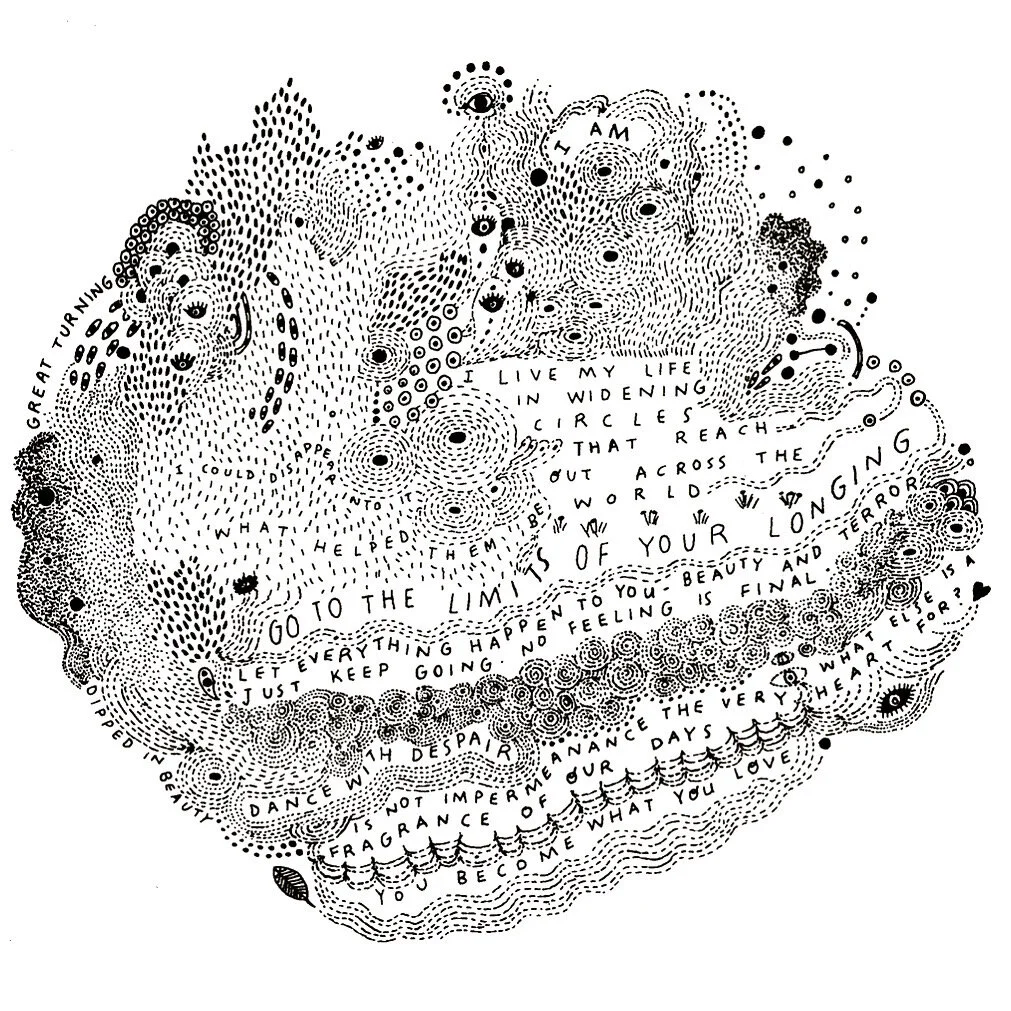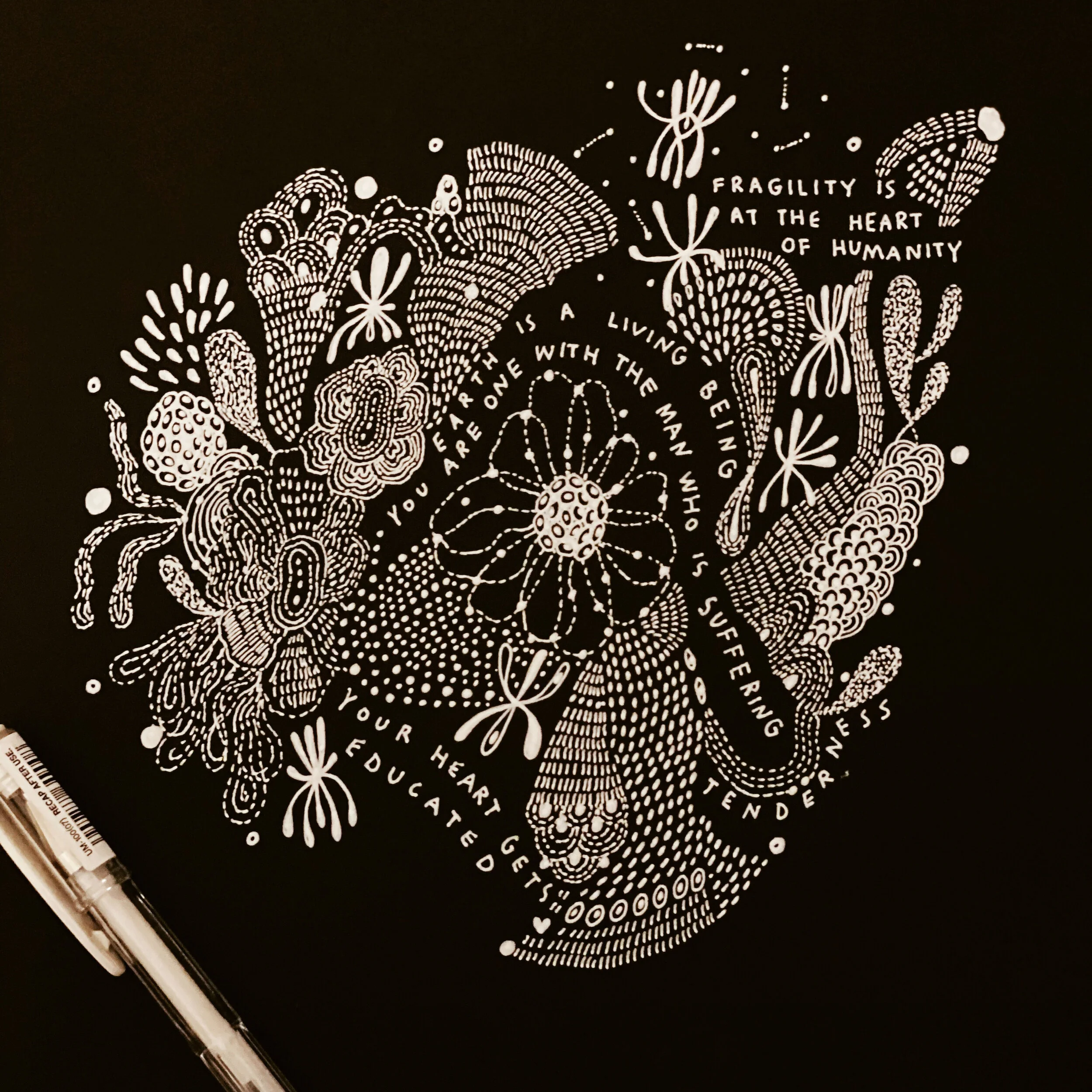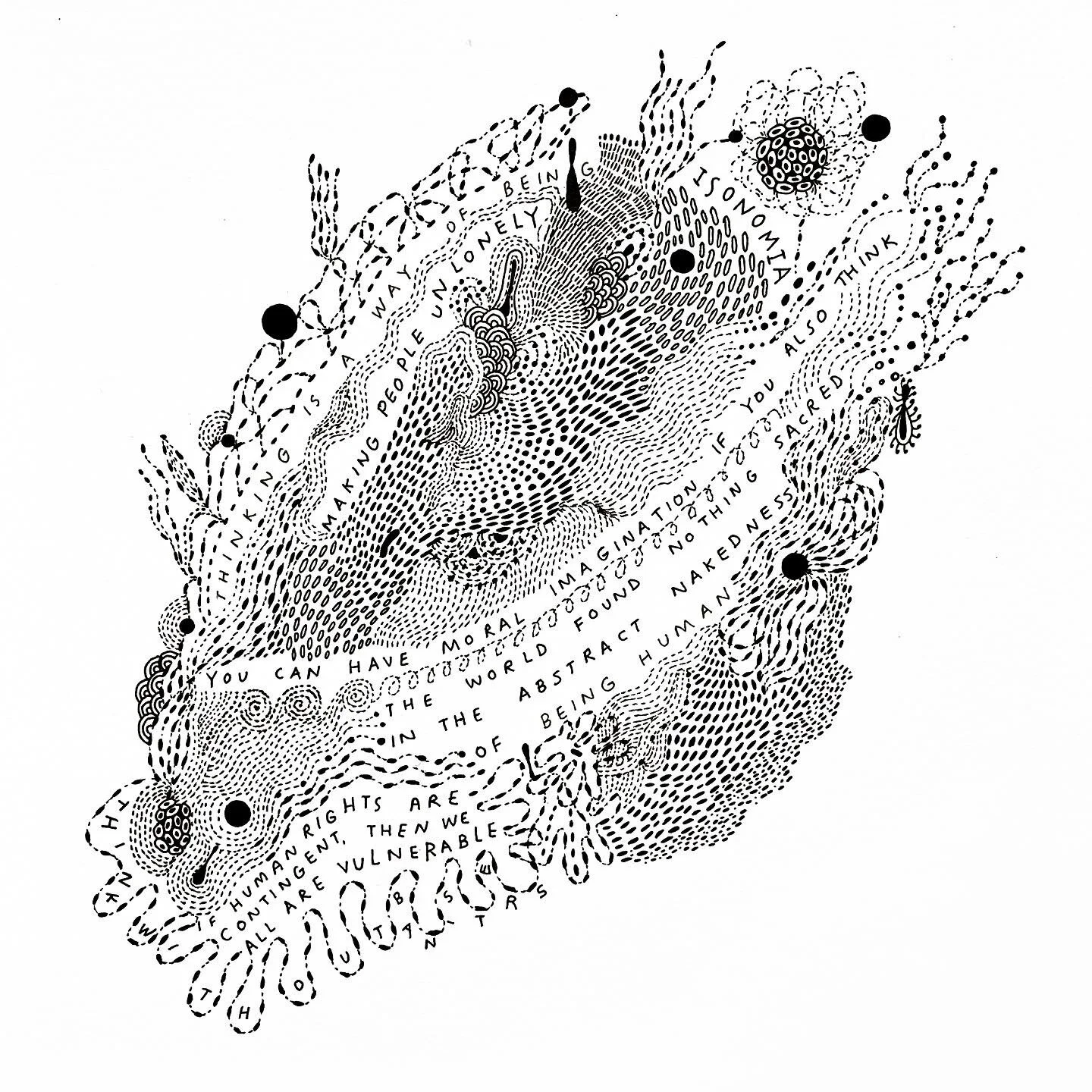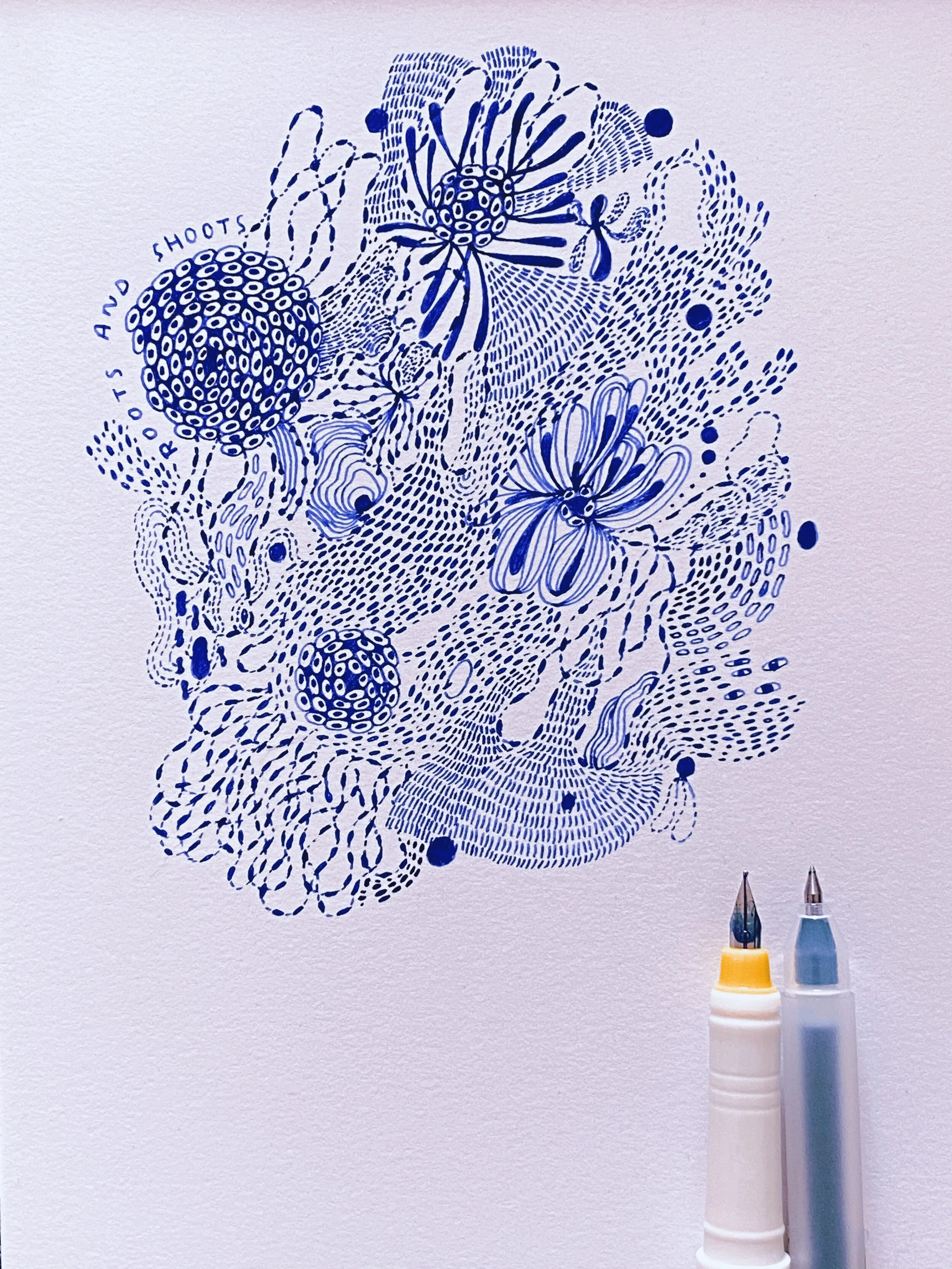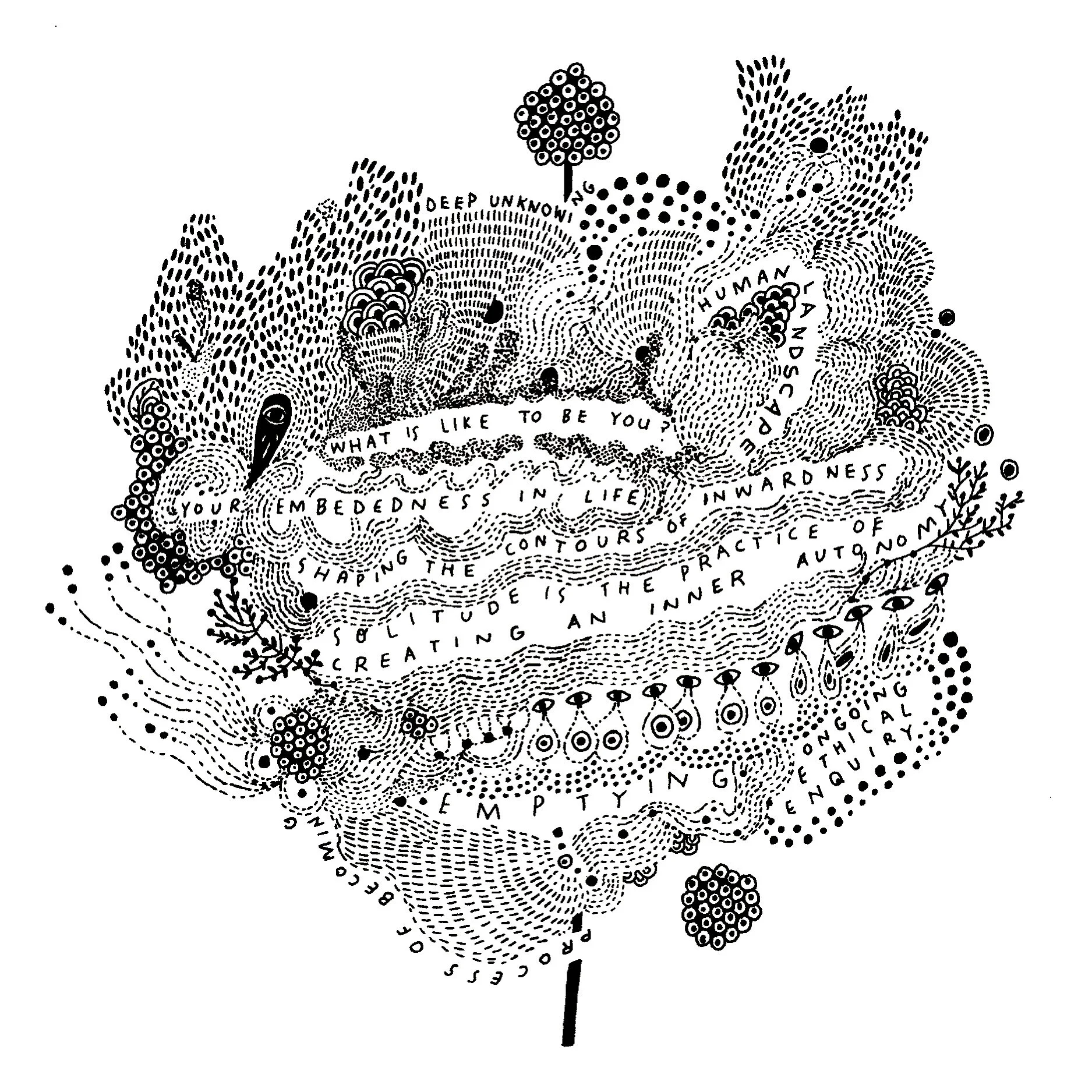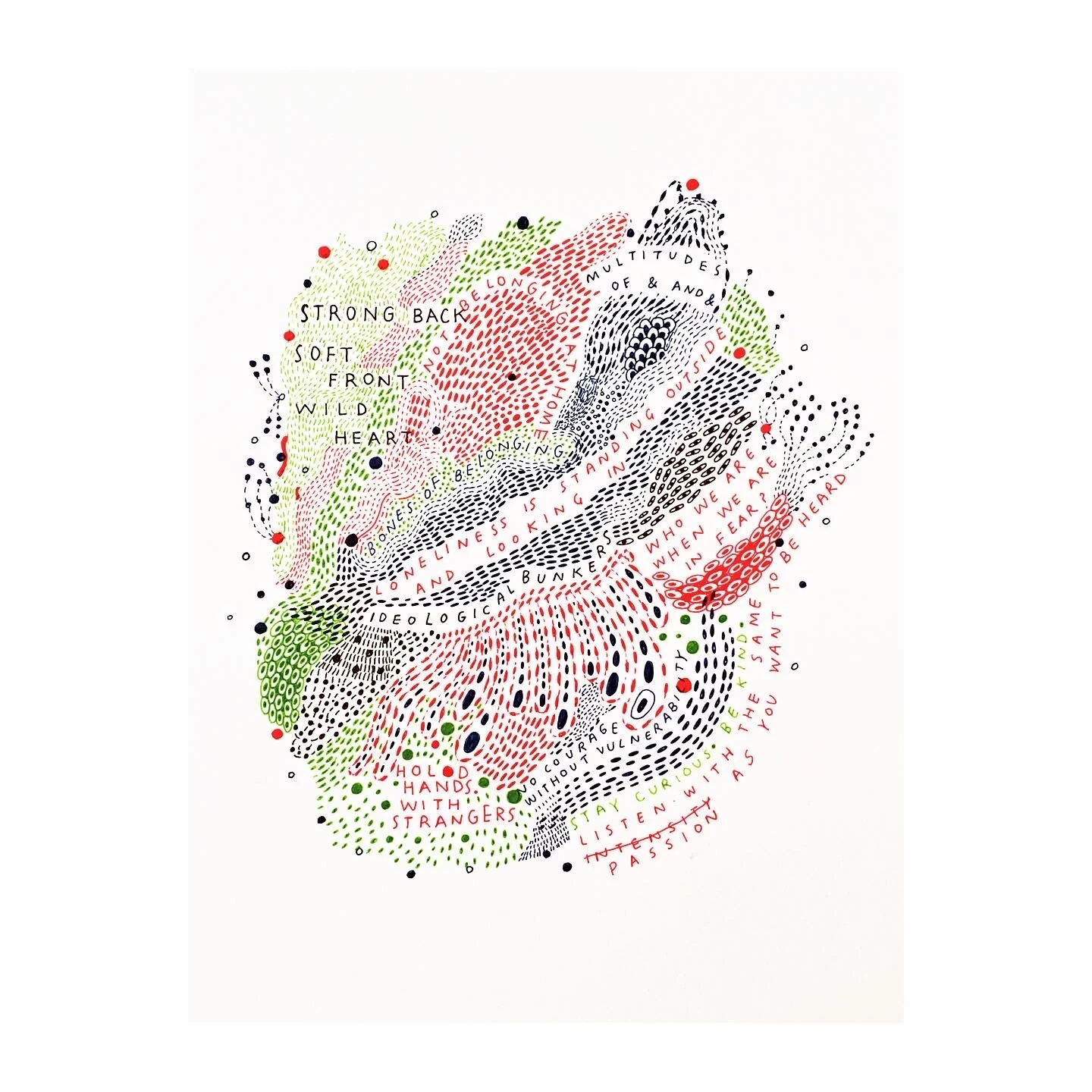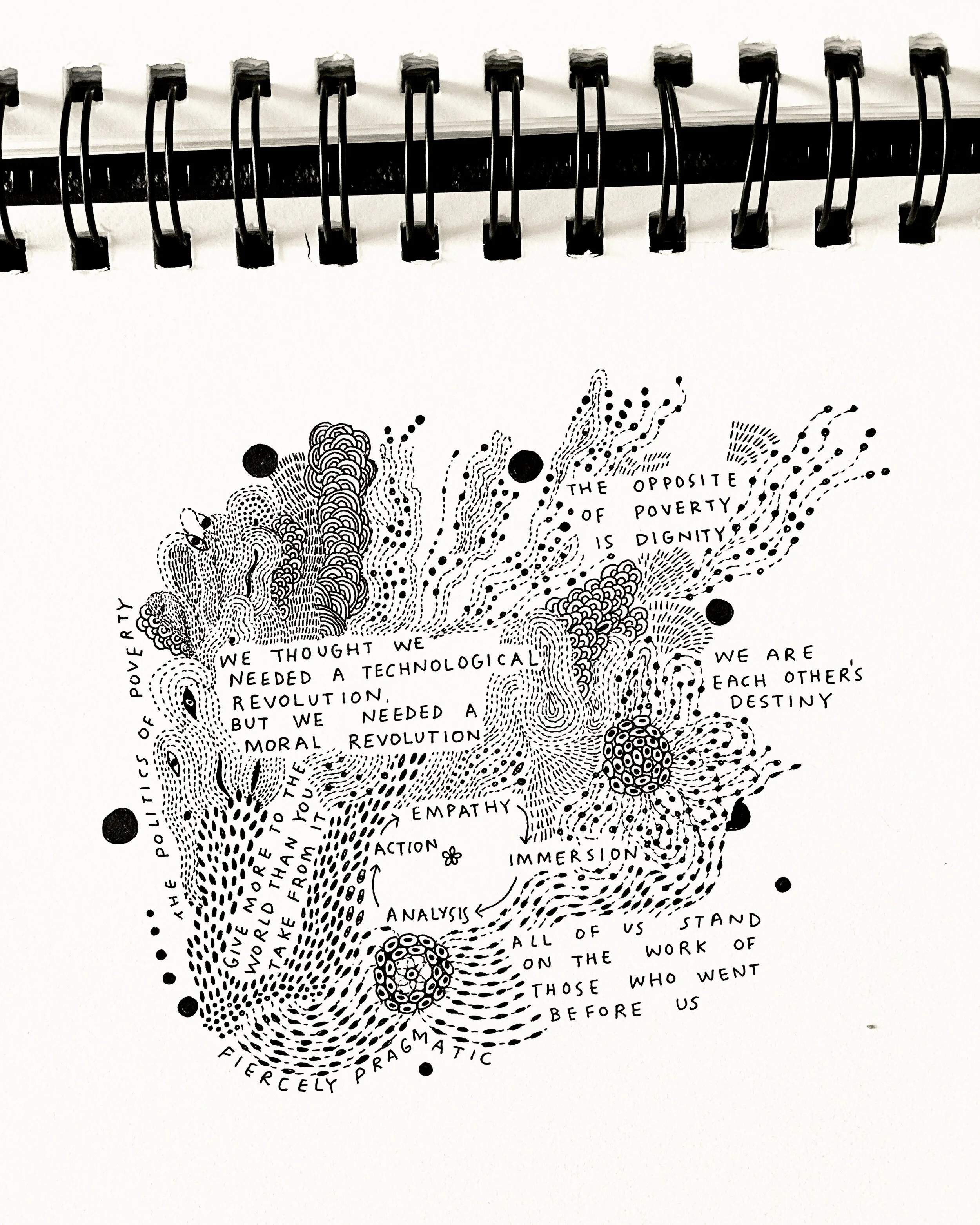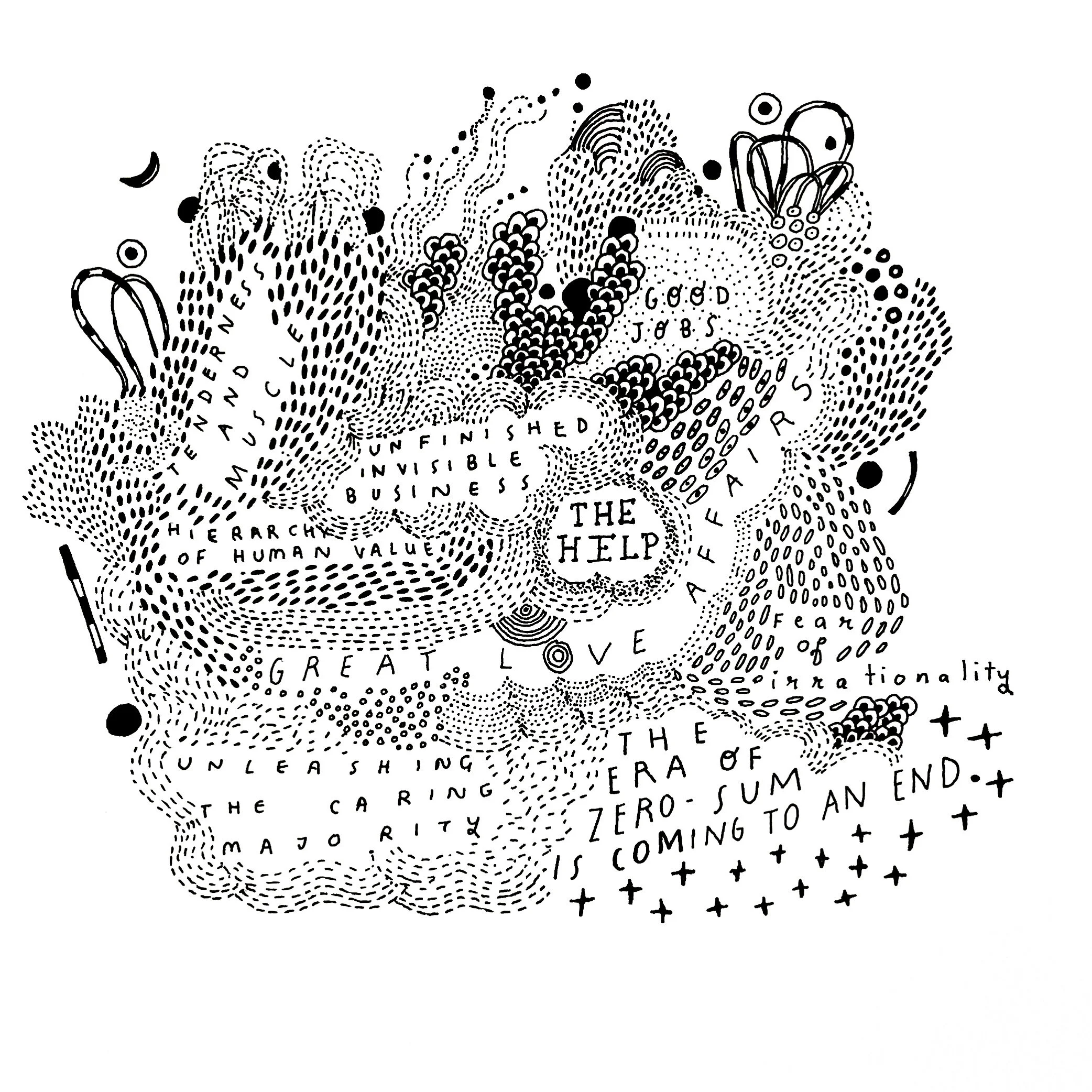In the beginning of 2020, as I found myself in the deep throes of despair, I turned to listening to the elders of this world. This project emerged FROM ME.
Growing up in a religious Hindu family, I had access to a string of religious sermons that happened cyclically like the changing weather. I would be between the ages of five to twelve when my grandmother, then a widow would take me along on her pilgrimages and the religious sermons that happened with the regularity of night and day.
The sermons would have been the only way for her to seek answers to the questions she would be grappling with. Given that she didn’t know how to read or write, she would tune into the thousand year old oral tradition of transmitting sacred knowledge. I used to be present, but only in the way that any 10-year old would be - mostly interested in day dreaming or looking at the majestic colours of the constructed stages. There would be times though when I would give in and tried to focus all my attention to what was being spoken, but my attention would divert away. I was present in body, but not in mind.
It was the end of 2019, beginning of 2020. It had been more than two years of my grandmother’s passing. I found myself in the throes of a cycle of pain and emotional vacuum that threatened to tear apart the very thread of sanity that had been holding me up. I would swing violently between states of anger, self loathing and restlessness. I was in a better place than my grandmother given I could both read and write. But I couldn’t. No written word would grab my attention for more than minutes at a time and my fingers would get flooded by my tears as soon as I even tried to twitch them into journaling.
It was during this time that I got up one morning with the faint resolution of quietening the voices in my head. I had been listening to the OnBeing Project podcast every now and then during my walks and found a close kinship with what was being discussed. I tuned into one of the episodes and started drawing along.
As I gave all my sensory attention to what was being spoken, I felt like I was again sitting at the foot of a wise elder who was giving me the secrets of a meaningful life. For the one hour when I was in the company of the podcast guests, my fingers followed my mind followed my ears. Everything worked in unison.
These drawings are Attention Maps of the time I’ve spent in the healing company of this great oral tradition. At the time, I didn’t know that following this tradition would carry me forward through the year where everything we knew stood still.
The ripple of a great teacher is felt far and wide and that is absolutely true for Krista Tippet, the mother of this podcast that continues to change my life for the better. Thank you Krista, this is for you.
Mary Oliver — Listening to the world
Episode Available here: https://onbeing.org/programs/mary-oliver-listening-to-the-world/
“Wild Geese” — “You do not have to be good. / You do not have to walk on your knees / for a hundred miles through the desert, repenting. / You only have to let the soft animal of your body / love what it loves. / Tell me about despair, yours, and I will tell you mine. / Meanwhile the world goes on. / Meanwhile the sun and the clear pebbles of the rain / are moving across the landscapes, / over the prairies and the deep trees, / the mountains and the rivers. / Meanwhile the wild geese, high in the clean blue air, / are heading home again. / Whoever you are, no matter how lonely, / the world offers itself to your imagination, / calls to you like the wild geese, harsh and exciting — / over and over announcing your place / in the family of things.”
joanna macy
A WILD LOVE FOR THE WORLD
Episode available to listen here: https://onbeing.org/programs/joanna-macy-a-wild-love-for-the-world/
You, sent out beyond your recall,
go to the limits of your longing.
Embody me.
Flare up like a flame
and make big shadows I can move in.
Let everything happen to you: beauty and terror.
Just keep going. No feeling is final.
Rainer Maria Rilke
Gregory Orr — SHAPING GRIEF WITH LANGUAGe
Episode available to listen here: https://onbeing.org/programs/gregory-orr-shaping-grief-with-language/
What does it mean to live through trauma running through your bloodstream? It could mean quietus - or - it could mean a poem.
Gregory Orr was born February 3, 1947 in Albany, New York. He grew up in the rural Hudson Valley. At the age of twelve, he was responsible for the death of a younger brother in a hunting accident, an event that powerfully influenced his ideas about trauma, silence and poetry. When he was fourteen, his family moved to Haiti, where his father worked as a doctor at the Hospital Albert Schweitzer in Deschapelles. The family returned to the States a year later, after his mother’s sudden death. In 1965, at the age of eighteen, he worked as a civil rights volunteer in Mississippi. During that time, he was kidnapped at gunpoint in rural Alabama and held for a week in solitary confinement in the town of Hayneville. These events of his youth form the basis of his memoir, The Blessing, which tells the story of his childhood and how he came to poetry.
xavier le pichon
The Fragility at the Heart of Humanity
Episode available here: https://onbeing.org/programs/xavier-le-pichon-the-fragility-at-the-heart-of-humanity/
Our humanity is not an attribute that we have received once and forever with our conception. It is a potentiality that we have to discover within us and progressively develop or destroy through our confrontation with the different experiences of suffering that will meet us through our life.
ATUL GAWANDE — WHAT MATTERS IN THE END
Episode available here: https://onbeing.org/programs/atul-gawande-what-matters-in-the-end/
we’re this interplay of knowledge and technology and trying to function in a world where none of us have a full handle on it all. We’re inside a system, and we have to have some agency in that system. How do we not be powerless? And how do we shape that thing we’re part of? I’m interested in not only the sense of inside and outside; I’m also interested in the sense of the microscopic to the telescopic and starting to arrive at a way that we feel connected, and we know the meaning and the feelings, as well as the data, about what’s happening.
lyndsey stonebridge
The Moral World in Dark Times: Hannah Arendt for Now
Episode can be found here: https://onbeing.org/programs/lyndsey-stonebridge-the-moral-world-in-dark-times-hannah-arendt-for-now-jun2018/
“And you can scream facts at people until you’re blue in the face, and a lot of colleagues and universities and journalists have been doing exactly that very hard, working tirelessly. And it’s not making any difference. And I think what she’s talking about there is the ability through thinking and communal discourse, to make truth meaningful in the world, it has to happen between two people.”
Hannah Arendt, a philosopher, escaped from Nazi Germany at a time when millions could not. Her work evolved into political philosophy but never strayed from the humanity that politics had to serve.
I learnt about her first from a graphic novel that a friend gifted on my birthday and then as it happens with great books, couldn’t stop at the book.
jane goodall
What It Means to Be Human
Hear the episode here: https://onbeing.org/programs/jane-goodall-on-what-it-means-to-be-human/
Michael Pollan likens consumer choices to pulling single threads out of a garment. We pull a thread from the garment when we refuse to purchase eggs or meat from birds who were raised in confinement , whose beaks were clipped so they could never once taste their natural diet of worms and insects. We pull out a thread when we refuse to bring home a hormone-fattened turkey for Thanksgiving dinner. We pull a thread when we refuse to buy meat or dairy products from cows who were never allowed to chew grass, or breathe fresh air, or feel the warm sun on their backs.
The more threads we pull, the more difficult it is for the industry to stay intact. You demand eggs and meat without hormones, and the industry will have to figure out how it can raise farm animals without them. Let the animals graze outside and it slows production. Eventually the whole thing will have to unravel.
If the factory farm does indeed unravel - and it must - then there is hope that we can, gradually reverse the environmental damage it has caused. Once the animal feed operations have gone and livestock are once again able to graze, there will be a massive reduction in the agricultural chemicals currently used to grow grain for animals. And eventually, the horrendous contamination caused by animal waste can be cleaned up. None of this will be easy. The hardest part of returning to a truly healthy environment may be changing the current totally unsustainable heavy-meat-eating culture of increasing numbers of people around the world. But we must try. We must make a start, one by one.
resmaa menakem
Notice the Rage; Notice the Silence
Listen to the episode here: https://onbeing.org/programs/resmaa-menakem-notice-the-rage-notice-the-silence/
“Trauma decontextualised in a person looks like personality. Trauma decontextualised in a family looks like family traits. Trauma in a people looks like culture.”
stephen batchelor
Finding Ease in Aloneness
Strong Back, Soft Front, Wild Heart
“We’ve got to stop walking through the world looking for confirmation that we do not belong, because we will always find it. It’s the confirmation bias. If you’re looking for confirmation you don’t belong, you’re gonna find it. We don’t negotiate our belonging externally. It’s not something that we negotiate with other people or groups of people.”
The Mystery We Are
Towards a Moral Revolution
This History is Long; This History Is Deep
This Is Our (Caring) Revolution
